Chelsea Coving Installation (SW1): Coving, which decorates the juncture of walls and ceilings, has long been a fundamental element of interior design, spanning centuries. Used in grand architectural designs during the classical period, its purpose was to bring detail and elegance to the interiors of rooms. Coving's capability to enhance rooms with character and a sense of completion is why it remains popular in Chelsea today. Beyond its decorative purpose, it is instrumental in masking blemishes and cracks where walls meet ceilings, creating a sleek and unbroken line that augments the overall aesthetic appearance of a room.
What is Coving? - Coving is a moulded material, available in strips, which can be used for decorative purposes to cover the sharp, 90 degree angles between the surfaces of a room (ceilings and walls). Materials from which ornate mouldings and coving are made include plaster, PVC, plastic, MDF, softwood, duropolymer, hardened polyurethane, expanded polystyrene and gyproc.
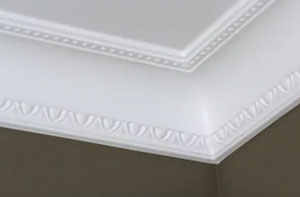
There are also an array of shapes and designs to choose from including step, Victorian, ogee, art deco, cyma recta, egg and dart, cavetto, Edwardian, dentil and ovolo.
Coving can be a subtle yet impactful addition to any room, providing a finishing touch to your interior design. By softening the transition between ceilings and walls, coving can add a touch of sophistication to your home's look. But, with so many patterns and materials to choose from, selecting the right coving for your property can be overwhelming. When selecting coving, it's crucial to take into account your personal preferences and the decor of your home. It's important to make certain that coving installation is done to a high standard to achieve the best possible outcome.
It could make it challenging for you, having such a lot of decisions to make. This would be a good time to ask the advice and guidance of an experienced Chelsea coving installer, who can point you in the right direction. Never fear, your property in Chelsea will get the coved finish it deserves by following the tips and tricks given right here.
Your Chelsea coving installation specialist should be just as capable of doing the repair and restoration of coving, as they are with new projects. Repairs to coving and decorative mouldings isn't something that should be needed all that often, but may need doing now and again. This might include repairs to ceiling roses, plaques, coving, dado rails, panel mouldings, picture rails, corbels, fire surrounds, dado corners or cornices.

Coving work and the installation of decorative mouldings is often done by plasterers, joiners (where timber mouldings are involved), painters and decorators, and specialist coving fitters in Chelsea, when available. Make sure they're experienced at work like this before you hire anyone. It is painstaking work fitting coving correctly and in order to get a quality finish it should be done carefully and meticulously.

When you're considering quotations, you shouldn't simply go for the cheapest coving installer in Chelsea. You do not want to be paying for shoddy workmanship at any price, cheap is not always best! You want your coving to look stunning once it is in place, so picking the best tradesman for the job is your top priority.
When you are looking to find coving fitters in Chelsea, there are several ways in which it can be done for instance you can take a look in local newspapers or classified ads, you can look on Social Media such as Facebook, you could try one of the trade websites like Rated People or My Builder or you could pay a visit to the Federation of Master Builders website and do a search for vetted and approved local plasterers and coving installers. You're able to search for coving related products such as cornices, coving packs, coving cutting tools, pre-cut coving corners and coving adhesive by going to Jewson, Wickes, B&Q or Coving Direct, and you can buy tools and equipment for coving and plastering (if you fancy having a bash on your own) by heading over to Tool Station, Screwfix or Artex Ltd.
The Advantages of Professional Installation
Choosing between professional and DIY coving installation hinges largely on the project's level of difficulty, one's skill set and considerations regarding the budget.
- Safety: Professionals, trained in safe practices, are crucial for coving installation as it often involves heavy materials and working at height, helping to lessen the risk of accidents.
- Time Efficiency: Hiring a professional can significantly reduce the time taken to finish the project. They are equipped with the right tools and techniques to expedite the process, which is particularly beneficial for large or complex installations.
- Quality Assurance: Quality is usually assured with professional installation. Experienced installers are expected to render a smooth finish, aligning and securing the coving perfectly, which is crucial for a polished appearance and the coving's lastingness.
- Cost Implications: The cost is the foremost drawback of choosing professional installation, as it can be significantly higher than a DIY approach, particularly when the coving material, such as plaster, is on the expensive side.
- Expertise and Precision: Installers of professional calibre bring invaluable skill and experience, especially adept with various coving materials like the cumbersome plaster. They ensure meticulous measurements and precise cuts, essential for coving that need to be cut to fit irregular spaces or coving with elaborate designs.
Coving installation can be undertaken in Chelsea and also nearby in: Knightsbridge, South Kensington, Sands End, Abbots Manor, Worlds End Estate, Parsons Green, Clem Attlee Court, Coleridge Gardens, Chelsea Harbour, Walham Green, Earls Court, Churchill Gardens, Palace Green, and in these postcodes SW10 0EZ, SW10 0GZ, SW10 0LU, SW10 0GX, SW10 0PL, SW10 0DX, SW10 0PJ, SW10 0GR, SW10 0NE, and SW10 0GD. Local Chelsea coving specialists will most likely have the phone code 020 and the postcode SW1. Checking this out should guarantee that you access locally based coving fitters. Chelsea homeowners will be able to utilise these and various other similar services. To make enquiries and obtain estimates for cornice and coving installation, just click the "Quote" banner.
Picture Rails
Horizontal picture rails are mouldings that are generally fixed to walls roughly twelve to twenty four inches under the ceiling line. The original purpose of picture rails was for hanging pictures without the risk of damaging the walls with screws, hooks, or nails. By using picture hooks that sit neatly on the rail instead of drilling holes in the wall, you can effortlessly move or change your artwork or photos whenever you wish.
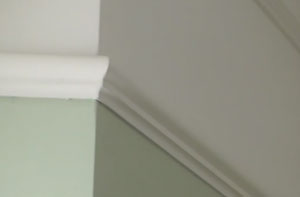
Adding a decorative element and functionality to rooms, these mouldings enjoyed great popularity in homes from the Edwardian and Victorian eras. Despite being frequently found in older properties in Chelsea, they are still installed by many today for their practical benefits and timeless aesthetic. Picture rails add a touch of character to any space by creating a visual diversion on tall, featureless walls.
If you have basic woodworking skills, installing a picture rail is a reasonably straightforward DIY undertaking. It requires taking measurements, cutting the rail material to the desired length, and fastening it to the wall, usually with screws or nails. When in position, the rail can be painted or stained to align with your interior decor, transforming it into a chic and functional feature for any space. (Picture Rail Installation Chelsea)
Gyproc Coving Chelsea
A decorative feature, Gyproc coving is used to improve the appearance of the junction between walls and ceilings in Chelsea. Made out of preformed plasterboard, it comes in a variety of different sizes and designs to suit different types of rooms. Creating a smooth transition from ceiling to wall and hiding ugly imperfections or gaps, installing this type of coving adds a bit of elegance to any space.
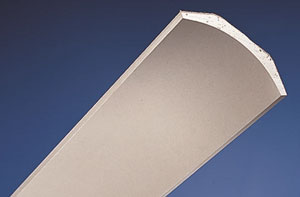
The process of installation is relatively straightforward. Coving pieces are cut to fit the room's dimensions and then secured in place with a special adhesive. For a neat finish, joints and gaps are filled and smoothed by sanding. This makes Gyproc coving a simple DIY project for Chelsea home and property owners wanting to enhance their interiors' aesthetics without the requirement for extensive refurbishments.
Gyproc coving also offers practical benefits. Covering cracks that may develop with time at the ceiling-wall junction, it provides a longer-lasting, cleaner look. To allow for further customisation, coving can be painted to either contrast with or match the decorative features of the room. Gyproc coving is a simple and effective way to improve the functionality and beauty of a room. (Gyproc Coving Chelsea)
Plaster Cornice Refurbishment Chelsea
Plaster cornice restoration is a crucial aspect of maintaining the aesthetic appeal of a building's interior. Moisture, general wear and tear or accidental impact are some of the factors that can cause damage to cornices - the decorative molding that embellishes the intersection between the ceiling and walls.
The expertise of a skilled tradesperson is required to refurbish a plaster cornice, as they are capable of assessing the level of damage and devising a suitable restoration plan. The typical process for repairing a plaster cornice entails cleaning the area, eliminating damaged or loosened plaster, and filling in the gaps with new plaster. Competent tradespeople can also replicate intricate patterns and designs to ensure that the repaired cornice matches the original features.
Failure to repair a damaged cornice can lead to its further deterioration and impact the safety and structural integrity of the building. Seeking specialist help for any plaster cornice repair work is vital.
Plaster Coving Installation Chelsea
Adding a touch of style and elegance to any room, plaster coving is a decorative moulding that enhances the junction between walls and ceilings. Gypsum plaster, often reinforced with hessian or fibreglass, is normally used to create elaborate and durable decorative mouldings. Available in a range of designs, from simple curves to ornate patterns, it is suitable for both traditional and contemporary interiors in Chelsea. Plaster coving is often chosen by Chelsea home and property owners to conceal imperfections and create a seamless transition between the ceiling and wall.
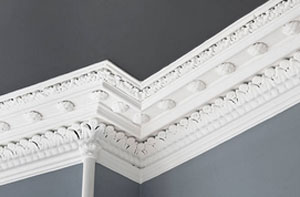
Precision and skill are essential for achieving a neat and professional finish when installing plaster coving, although it may look easy. Engaging an expert guarantees precise cutting of the coving, with flawlessly mitred corners, and secure fixing in place. The right tools and materials will be used by a specialist installer, who will ensure the adhesive is correctly applied and gaps are seamlessly filled, resulting in a flawless finish.
Selecting a professional for plaster coving installation saves you time and hard work, guaranteeing a high-quality finish that improves the appearance of your home in Chelsea. Professionals can suggest the best coving styles to enhance the decor of your home and make sure the installation process is carried out quickly and efficiently. Their expertise and know-how allows you to benefit from the added value and enduring elegance that well-installed plaster coving provides to your home in Chelsea. (Plaster Coving Chelsea)
Polyurethane Coving
Polyurethane, a synthetic and lightweight polymer, is celebrated for its versatile and durable nature. Replicating the elaborate designs of conventional plaster coving, polyurethane coving presents numerous unique benefits.
Some Benefits of Polyurethane Coving:
- Moisture Resistance: Humidity can so serious harm to conventional coving materials. Polyurethane, however, stands strong. Completely unaffected by moisture, it's the perfect solution for kitchens and bathrooms, where humidity levels can fluctuate significantly.
- Cost-Effective: The initial cost per metre of polyurethane coving might be a touch higher than basic plaster coving. However, remember - the ease of installation and lower risk of damage during fitting can lead to significant savings overall, making polyurethane a more budget-friendly choice in the long run.
- Lightweight: One of the primary benefits of polyurethane coving is its dramatically lighter weight in comparison to plaster. This makes it a DIY-friendly option, because it's easier to install and handle, particularly for those tackling home improvement projects themselves. Additionally, the lighter weight reduces the risk of damaging your walls and ceilings during the installation process.
- Durability: Unlike plaster, which can become brittle and prone to cracks and chips over time, polyurethane boasts exceptional resistance to warping, chipping and cracking. This ensures your coving retains its beauty and integrity for years into the future.
- Low Maintenance: The care required for polyurethane coving is minimal, unlike plaster that can easily deteriorate; it just needs occasional wiping or dusting.
- Versatility: The beauty of polyurethane coving lies in its incredible versatility. Whether you crave the clean lines of contemporary minimalism or prefer the elegance of classic Victorian designs, you'll find a style that perfectly complements your your existing décor.
- Pre-Primed: Most polyurethane coving is pre-primed, saving you effort and time during the painting process. Simply apply your required topcoat for a faultless finish.
- Ease of Installation: Polyurethane coving can be installed using simple tools and readily available adhesives. This makes it a DIY-friendly alternative, although professional installation is always recommended for complicated projects or intricate coving designs.
Compared to conventional plaster coving, polyurethane coving serves as a practical and aesthetically pleasing option. The combination of ease of installation, durability, and a wide variety of styles makes it a universally appealing choice for both homeowners and interior designers seeking to create beautiful and practical living spaces. With thoughtful planning and careful execution, polyurethane coving can add a hint of elegance and sophistication to any room in your Chelsea home.
Is Coving a Messy Job?
Coving installation is not the most tidy of tasks. It entails applying plaster or adhesive to the ceilings and walls, then securing decorative moulding in place. This process produces dust, debris, and the potential for spills. Cutting and fitting the coving can also generate waste materials. While professionals employ dust sheets and protective measures to minimise mess, some level of cleanup is typically required afterward. DIYers in Chelsea may find it somewhat messier due to a lack of proficiency. In general, while coving can provide an eye-catching finishing touch to a room, it does involve a degree of messiness that requires management.
What is the Difference Between Coving and Cornice?
A cause of continual confusion to homeowners in Chelsea, and a question that we're frequently asked is "What's the difference between coving and cornice?" The response that you will perhaps not be expecting, is that they are effectively the same. The primary detail that separates the two is that a coving generally has a simple shape, whilst a cornice is usually far more elaborate and ornate. The term coving was initially used to describe a plain "C" shaped moulding that was fashionable in Chelsea in the post-world war period. On the other hand, cornices are usually exceptionally complex mouldings, that are challenging to install and call for the skills of a master craftsman in Chelsea.
DIY Coving Installation
A rewarding endeavour for those seeking to enhance their home's elegance, DIY coving installation eliminates the need for professional assistance. Accurate measurement is essential at the start of the process; ensuring your walls are measured correctly will guarantee that the coving fits snugly. To ensure precise and easy cutting, invest in a mitre box and a fine-tooth saw, as most coving comes in lengths that need to be cut at an angle.

It is important to check that the walls are free from dust and debris before you start fixing the coving in place. Using a strong adhesive or coving adhesive is perfect for attachment, but make sure to apply a substantial amount to achieve a solid bond. Press the coving gently into place, adjusting if necessary, and wipe away any excess adhesive before it sets.
As the final step, seal the edges and fill any gaps with decorator's caulk or filler. After drying, sanding off any rough patches will give you a smooth finish, ready for painting. Enhancing the look of your home in Chelsea is achieved through DIY coving installation, which also presents a satisfying project for individuals keen on self-improvement of their space. (Tags: DIY Coving Chelsea)
Wooden Coving Chelsea
For a touch of sophistication in any room, consider installing wooden coving - a decorative detail where wall and ceiling converge. It is produced in a multitude of finishes and styles, from contemporary to classic, to complement various tastes and interior design schemes. Coving enhances your property's appearance and hides any unattractive joints or imperfections where the ceiling and wall connect.
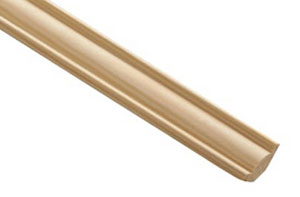
Installing timber coving requires precision and skill to guarantee it fits seamlessly and looks professional. The procedure includes measuring the area, cutting the coving to the correct size, and securing it firmly in position with adhesive and nails. Ensuring the coving matches your existing design scheme may require you to carefully sand and then paint or stain it. Although some individuals who are keen on DIY may attempt this task on their own, employing professional installation services guarantees a perfect outcome.
Fitting wooden coving becomes headache-free with professional installation services. Competent installers bring the necessary know-how and tools to complete the job successfully and a high standard. From the initial consultation and measurements to the final details, they manage everything, ensuring your home is enhanced with beautifully crafted coving. Ensuring the coving is both visually pleasing and durable, investing in expert installation also saves you valuable time. (Wooden Coving Chelsea).
Bespoke Archways and Alcoves
Classic elements that can transform a space from mundane to remarkable, bespoke alcoves and archways have long been celebrated in the world of architecture and interior design. These architectural features are not only pleasing to the eye, but they also have practical uses, such as defining areas within a room, providing storage solutions, or simply adding a bit of elegance and charm. Let's discover why bespoke archways and alcoves continue to be valued elements in interior design by delving into their world.

Bespoke Archways: Dating back to ancient civilizations like the Romans, archways are architectural wonders that have graced buildings for centuries. Modern-day interior design in Chelsea is seeing a significant comeback of bespoke archways today. These custom-crafted arches come in various styles, from the more modern, minimalist designs to the classic Roman arch.
One of the most notable advantages of custom archways is their ability to create a sense of flow and transition between spaces. While maintaining a feeling of separation, they connect different rooms, creating an open and inviting atmosphere. In addition, archways can also highlight particular areas or architectural features within a room, serving as focal points. Whether constructed of stone, wood or plaster, custom archways can be tailored to match the overall aesthetic of your space, adding a touch of character and sophistication.
Alcoves: Within walls, alcoves are recessed spaces that can serve various purposes. Centuries of use have seen these charming niches used to display art, house books, or create cozy reading corners. Bespoke alcoves allow homeowners in Chelsea to personalise these spaces according to their specific needs and preferences, making this concept more versatile and adaptable than ever before.
The Perfect Marriage: Bespoke alcoves and archways, when used in combination, can result in an interior that is visually striking and in harmony. Leading into a room with a bespoke archway and encountering a carefully created alcove can conjure up feelings of anticipation and drama. The archway serves as a frame for the alcove, highlighting its contents and adding depth to the overall design.
All in all, signifying craftsmanship and design, bespoke archways and alcoves are much more than mere architectural elements. They possess the ability to transform a space, endowing it with elegance, character, and functionality. Bespoke alcoves and archways, whether used to showcase your art collection, craft a cosy reading nook, or add a timeless elegance to your home, are design options that promise longevity, enriching your living space in various aspects. (10702 - Alcoves and Archways Chelsea)
Chelsea Coving Related Tasks

Chelsea coving specialists can normally help you with Georgian coving, Victorian coving in Chelsea, ceiling restoration, coving repairs, ornamental corbels, the installation of polyurethane coving, bathroom coving, cornicing, the installation of decorative coving in Chelsea, egg and dart coving in Chelsea, cornice mouldings, wooden cornice, plaster cornice repairs, coving refurbishment in Chelsea, bespoke coving, ornamental mouldings in Chelsea, lightweight coving, oak coving, ornamental arches, the installation of wooden coving, cornice installation, Victorian cornices, polystyrene coving, the installation of gyproc coving in Chelsea, cornicing services, cheap coving installation, traditional coving, character coving, ornate plaques, the installation of polystyrene coving and other coving related work in Chelsea. Listed are just a selection of the activities that are handled by local coving fitters. Chelsea specialists will be happy to inform you of their whole range of coving services.
Coving Installers Near Chelsea
Also find: Chelsea Harbour coving installers, Worlds End Estate coving installers, Churchill Gardens coving installers, Coleridge Gardens coving installers, Palace Green coving installers, Walham Green coving installers, Sands End coving installers, Abbots Manor coving installers, South Kensington coving installers, Clem Attlee Court coving installers, Knightsbridge coving installers, Parsons Green coving installers, Earls Court coving installers and more. All these towns and areas are served by people who fit coving. Ensuring professional and accurate coving installation in your property is the result of the know-how brought by these versatile craftspeople. The decision to hire a professional for coving installation guarantees property owners that it will be done correctly, thus adding to their homes' overall beauty and charm. Local home and business owners can get estimates by clicking here.
Chelsea Coving Services
- Egg and Dart Coving
- Coving Cutting
- Coving Designs
- Coving Fitting
- Cheap Coving
- Coving Installation
- Gyproc Coving
- Plastic Covings
- Coving Removal
- Polyurethane Coving
- Plaster Covings
- Coving Services
- Coving Replacement
- Coving Suppliers

More Chelsea Tradespeople: Naturally, whenever you are doing home improvements in Chelsea, you'll probably need all kinds of different tradespeople and aside from a coving fitter in Chelsea, you might also need a carpenter/joiner in Chelsea, a plasterer in Chelsea, a renderer in Chelsea, a tiler in Chelsea, cornicing in Chelsea, a locksmith in Chelsea, a general builder in Chelsea, SKIP HIRE in Chelsea, junk removal in Chelsea, a burglar alarm installer in Chelsea, a painter & decorator in Chelsea, an electrician in Chelsea, wallpaper stripping services in Chelsea, and various other Chelsea tradesmen.
 Coving Installation Chelsea
Coving Installation Chelsea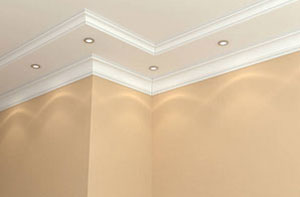 Coving Installers Near Me
Coving Installers Near Me Coving Fitters Chelsea
Coving Fitters ChelseaTo get local info on Chelsea, Greater London look here
More: Plastic Coving, Wooden Coving, Coving Specialists, Cornice Fitters, Coving and Cornices, Cheap Coving Fitters, Coving Installers, Wooden Coving, Coving Installers, Coving, Wooden Coving, Wooden Coving, Coving Installation, Cornice Fitters, Plaster Coving, Wooden Coving, Cornice Fitters, Plaster Coving, Cheap Coving, Coving Specialists, Cornices and Coving, Coving Installers, Coving Installers, Cheap Coving, Coving Specialists, Duropolymer Coving, Cheap Coving, Cornices and Coving, Coving Installers, Cheap Coving Fitters, Plaster Coving, Cornices and Coving, Plaster Coving, Coving Fitters, Plastic Coving, Pebble Dashing, Internal Plastering, Plaster Repair, Cheap Plastering, Cheap Plasterers.
Coving fitters SW1 area, phone code 020.
TOP - Coving Installation Chelsea
Coving Fitters Near Me - Coving Fitters Chelsea - Cheap Coving Chelsea - Coving Installation Chelsea - Coving Specialists Chelsea - Ceiling Rose Installation Chelsea - Cornices and Covings Chelsea - Cornice Installation Chelsea - Dado Rails and Mouldings Chelsea




